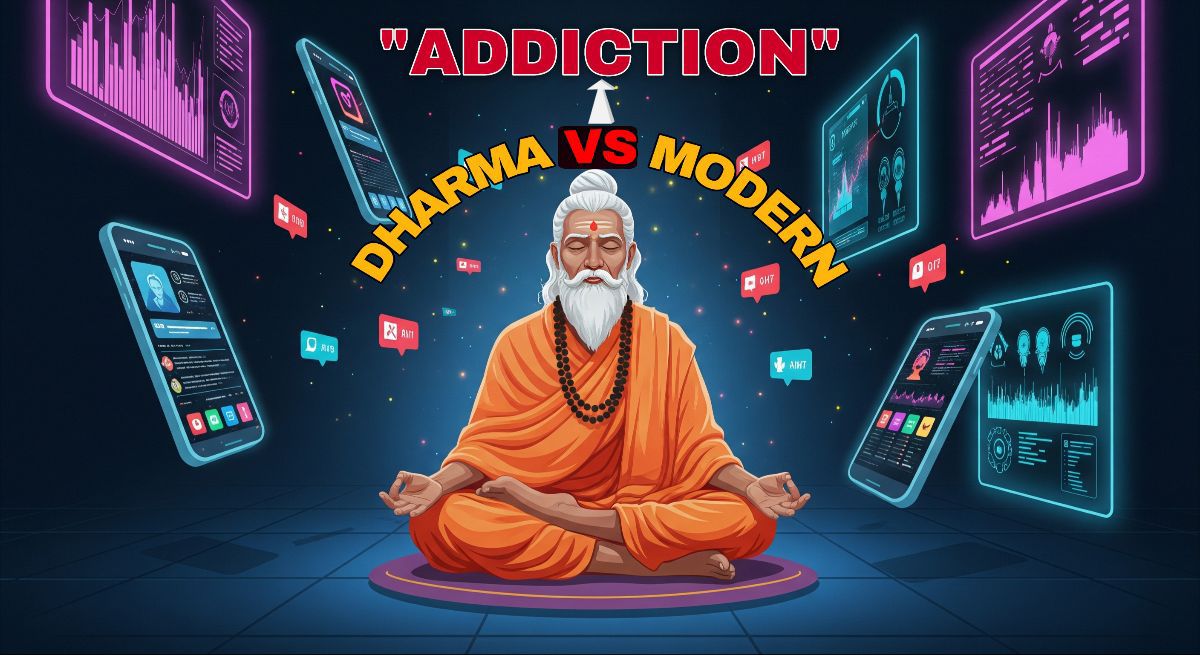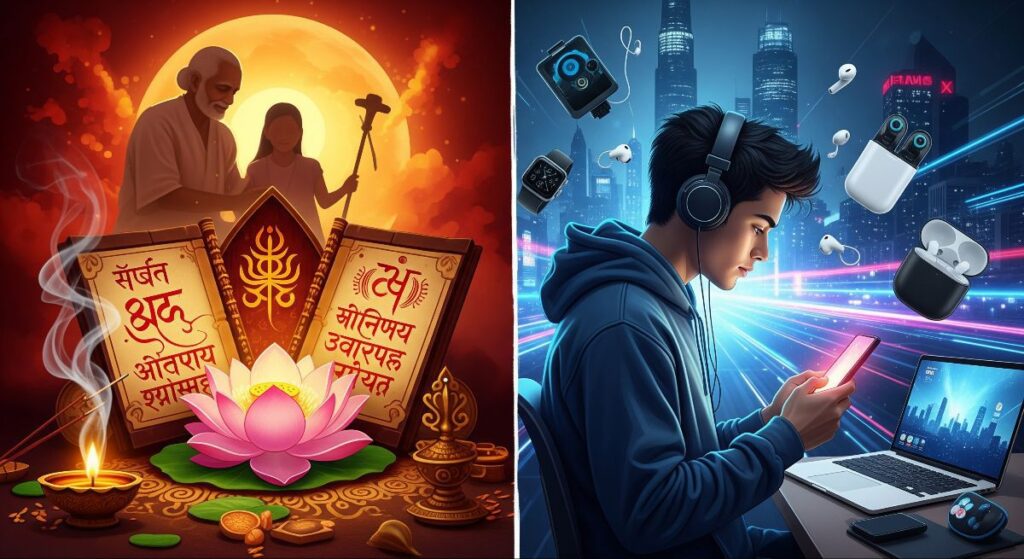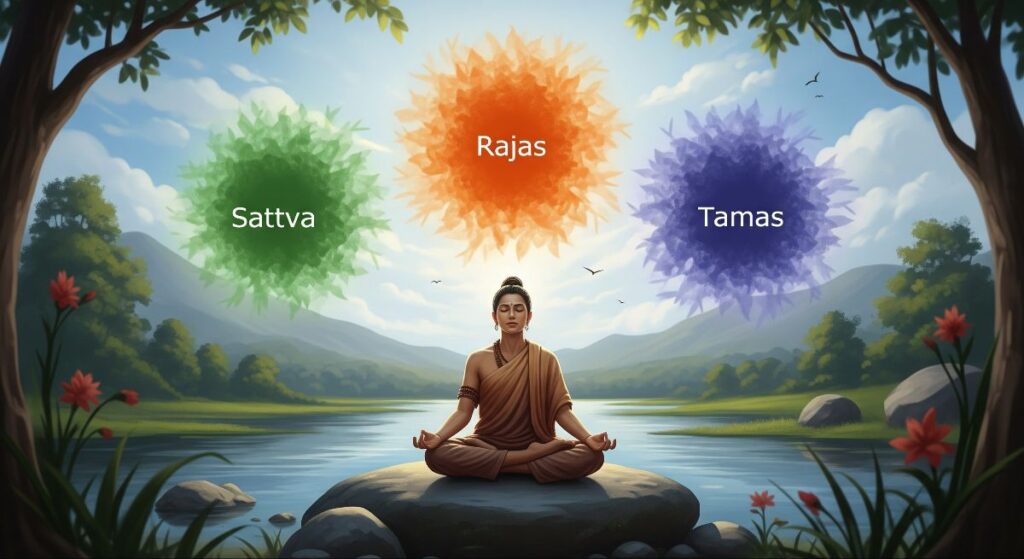
Introduction: The Crisis of the Uncontrolled Mind
We live in a time of unbelievable technological progress yet this progress has quietly created a rise in compulsive behaviors These issues are not just simple bad habits they pull the mind toward quick and easy pleasure. Many people today struggle with pornography, constant phone usage compulsive self-pleasure, and escaping into video games. All these patterns show a deeper spiritual problem a weakening of self-control. In ancient Sanskrit this loss of mastery over the senses is called Indriya Nigraha.
A. The Modern Trap and the Erosion of Will
Most modern digital addictions grow from one source: instant gratification. Research shows that online gaming,porn consumption, and endless scrolling are built to grab attention and trigger addictive patterns. These platforms use human psychology, algorithms, and the fear of missing out to keep people hooked…
From a spiritual lens, this reflects the influence of Rajasika Guna a restless state filled with desire, excitement, and ego-driven impulses. When this guna dominates, people keep chasing quick pleasures and material thrills, which only leads to dissatisfaction and inner conflict.
For many, online shopping or gaming becomes a coping mechanism for stress or boredom. This pushes them into Tamasika a dull, confused mental state that traps them in the addiction cycle. Real recovery comes not from quitting alone, but from shifting the mind toward Sattvika clarity, purity, balance, and wisdom.

B. The Conflict: Ancient Dharma vs. Westernization
Traditional Indian culture was built on a philosophical structure that supported disciplined, balanced, and meaningful living. The foundation of this system was Dharma a moral and personal framework that guided people toward righteous living. Both shared moral duties (Sadharana Dharma) and personal responsibilities (Svadharma) helped maintain harmony in society.
But with globalization and the influence of Western values, a deep cultural tension has emerged. Western thinking emphasizes individualism, economic freedom, and rapid technical progress. While these ideas promote outward success, they sometimes clash with India’s age-old values of community, interdependence, and spiritual discipline.
As Western ideals grow stronger, traditional support systems elders, community bonds, and moral anchors have weakened. In the context of addiction, this gap is critical. Western psychology focuses on the individual mind, while Indian philosophy stresses community, Dharma, Karma, and collective guidance. Without these spiritual and communal foundations, people feel alone and vulnerable to digital temptations and instant pleasure. To break free, one must reconnect with the structure, discipline, and wisdom offered by ancient Indian philosophy.
Read this Article Also :

REMEMBER tHIS POINTS ON YOUR DAILY LIFESTYLE :
- Technology is advancing, but human self-control is declining.
- Addictions today are not small habits they deeply affect the mind.
- Instant gratification is the core engine behind digital addiction.
- Algorithms + FOMO increase psychological dependence.
- Rajasika Guna pushes toward desire and restlessness.
- Tamasika Guna deepens laziness, confusion, and addiction.
- Real recovery requires shifting to Sattvika Guna balance and clarity.
- Ancient Indian Dharma offered structured moral and spiritual guidance.
- Westernization emphasizes individualism over community support.
- Loss of traditional values increases vulnerability to digital addiction.
- Reconnecting with Dharma-based living strengthens discipline and self-control.

My Final Conclusion : In the end, the crisis we face today is not just technological it is deeply spiritual. Modern life constantly pulls our attention outward, weakening our will and our connection with ourselves. Ancient Indian wisdom reminds us that true freedom comes from mastering the mind, not from surrendering to impulses.To rise above digital addiction, we must rebuild the lost balance strengthen our discipline, reconnect with Dharma, and cultivate a Sattvika mind. Only then can we reclaim control over our senses and live with purpose, clarity, and inner strength.
Read this Article Also :
Negative Effects of Excessive Porn: Mental, Social & Physical Impact






